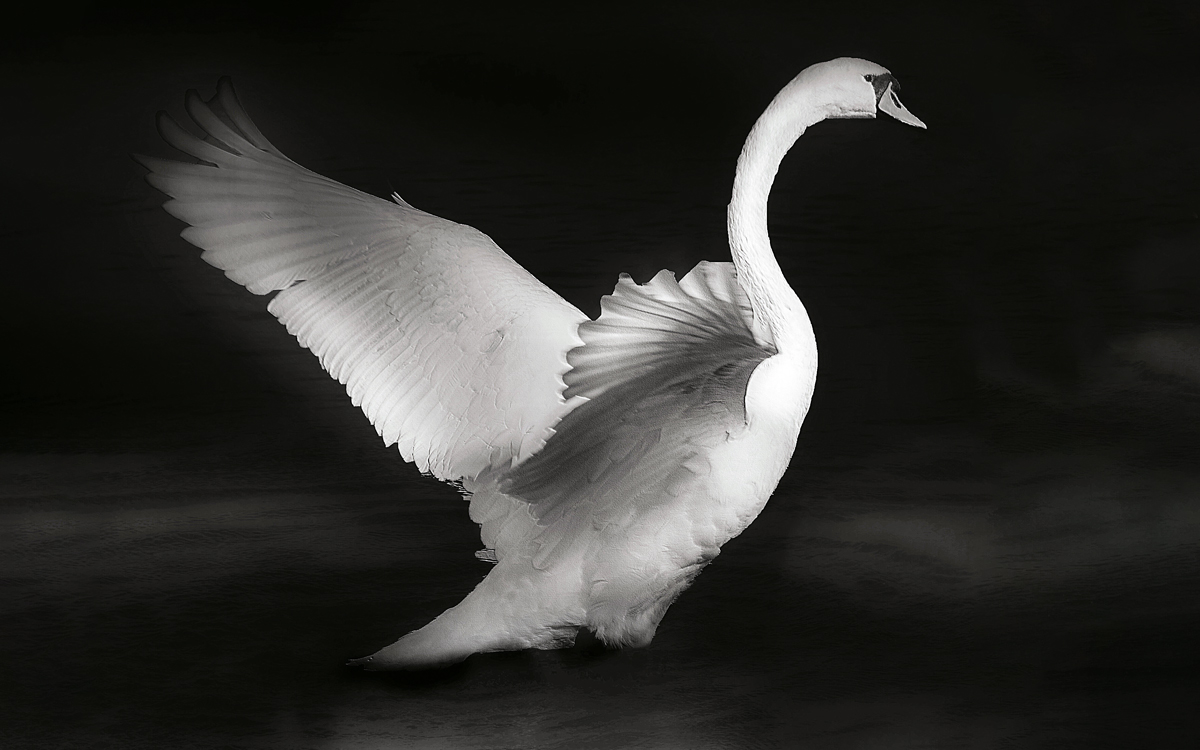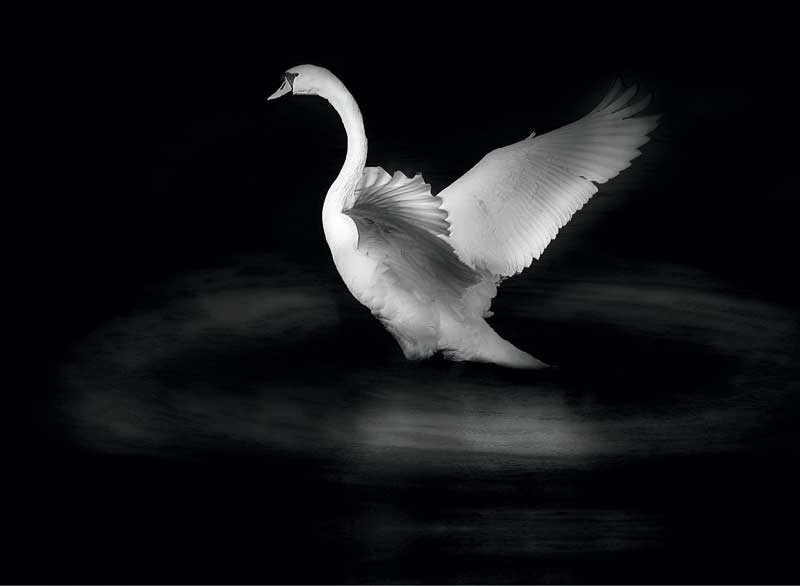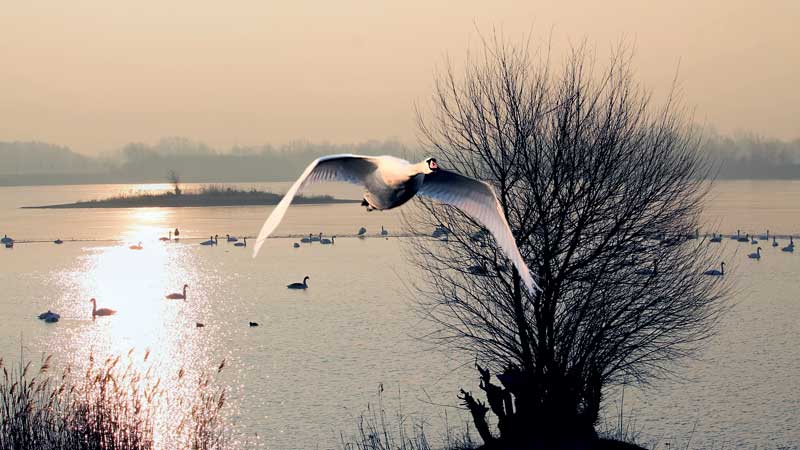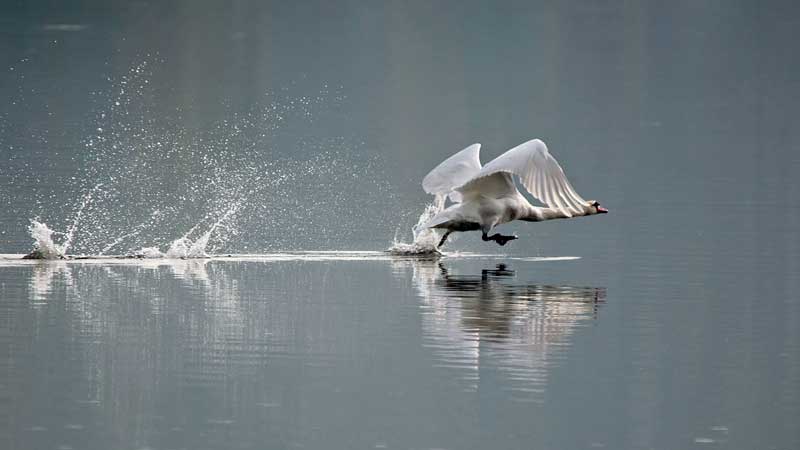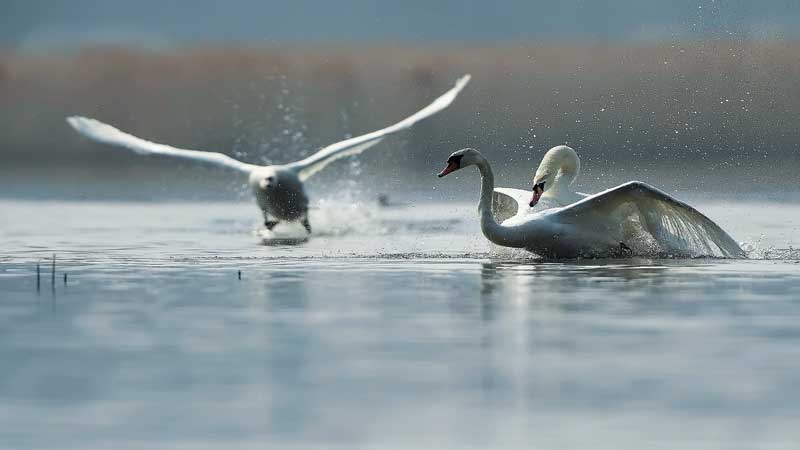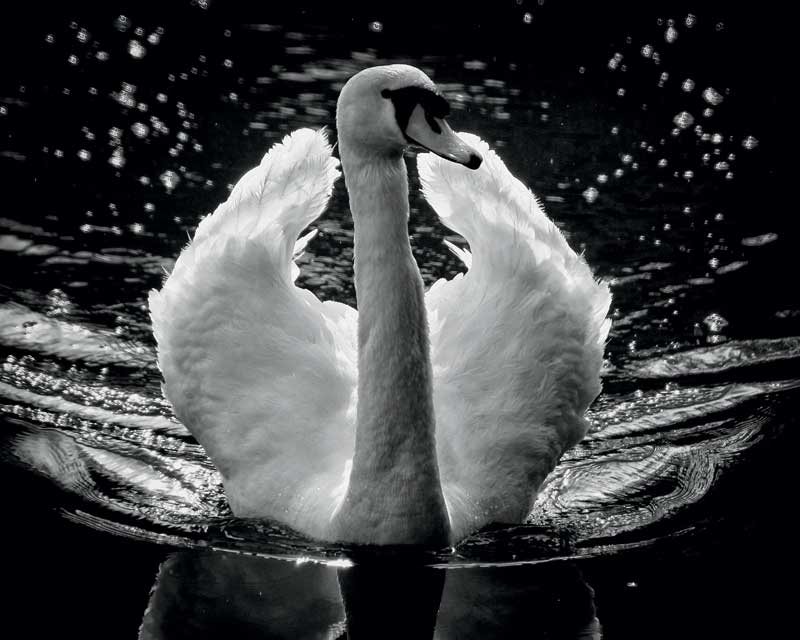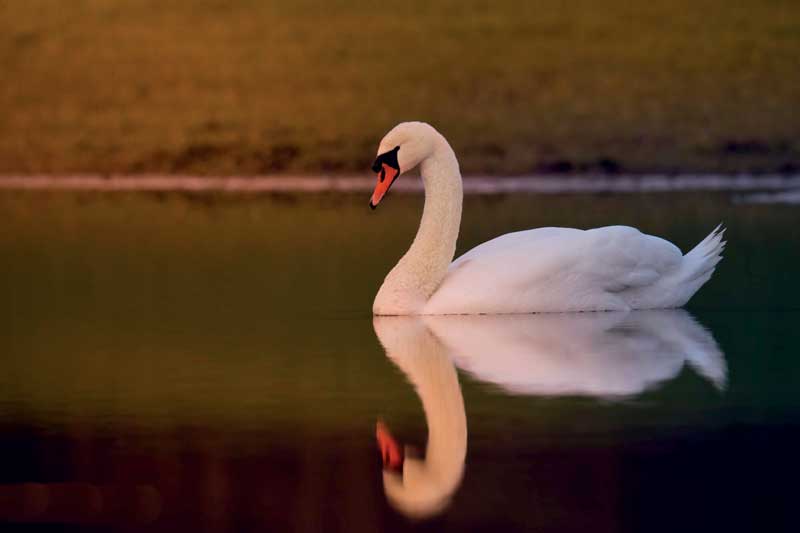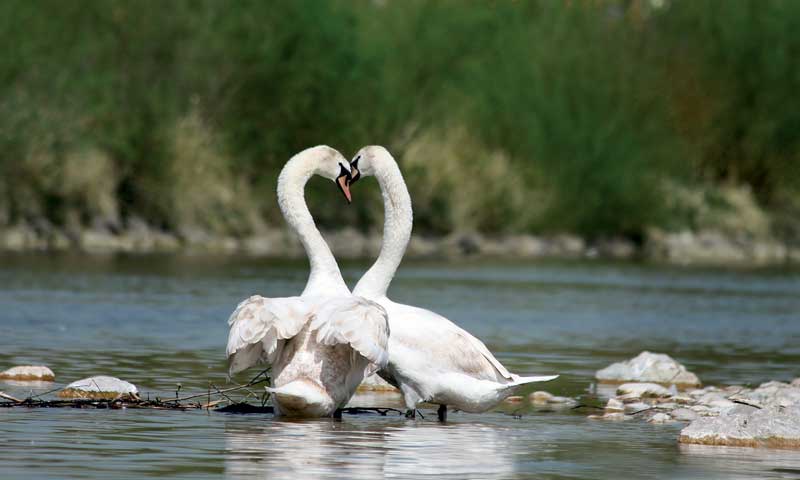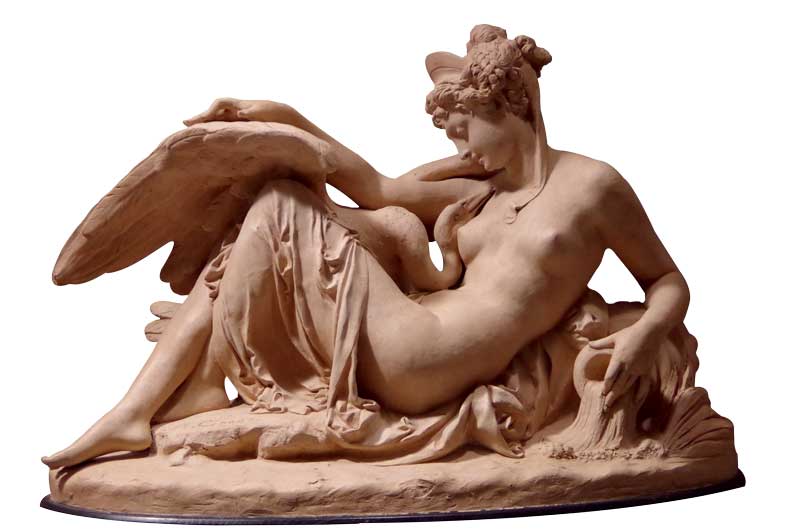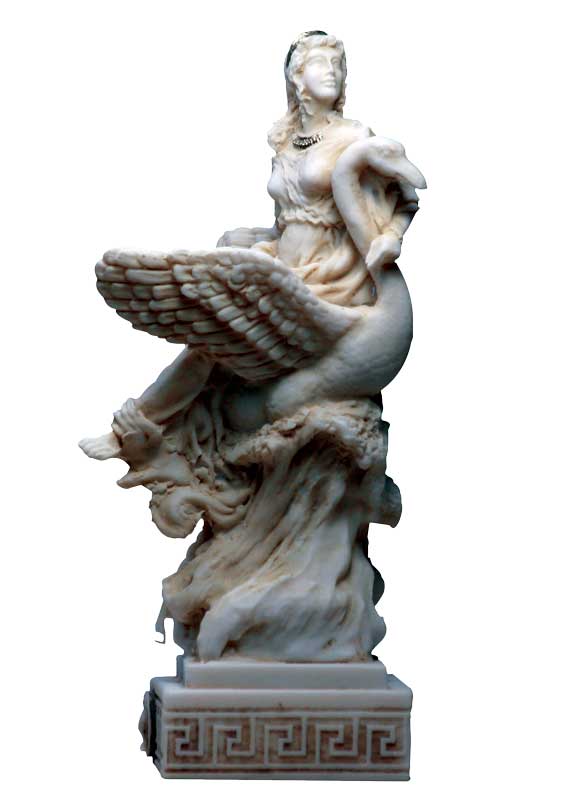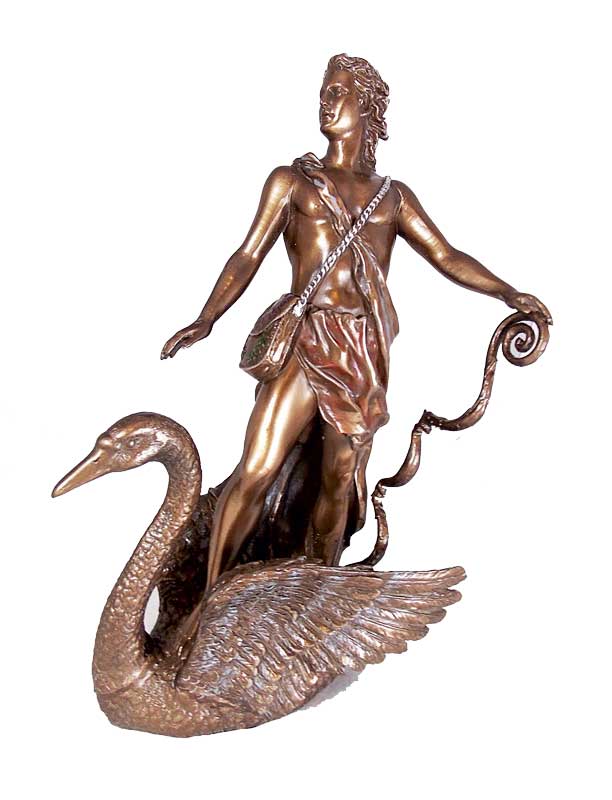A Bird That Becomes a Symbol
The swan is considered one of the most beautiful birds in the world. Since 1984, it is the national animal of Denmark. However, we must recall that at the beginning of the 20th century it was on the verge of extinction in this territory; there were only between three and four couples. Fortunately, since 1926 it has become a protected species, and the best news is that the species is currently fully recovered with a population of approximately 5,000 breeding pairs.
It’s impossible to evoke the swan without associating it with Denmark, where it’s a cultural symbol; we only need to mention the universally known tale of the Ugly Duckling, by the great Danish writer Hans Christian Andersen, who also immortalized the bird in other short narratives such as The Swan’s Nest: “Between the Baltic and the North Sea there lies an old Swan’s Nest, and it is called Denmark. In it have been born, and will be born hereafter, Swans whose names shall never die.”
There are eight different swan species: Black Swan, Black-necked Swan, Trumpeter Swan, Whistling Swan, Cantor Swan, Tundra Swan, Coscoroba, and the one that concerns us: the Mute Swan (Cygnus olor), also known as “Common Swan.” Its main characteristic is its large size that can reach 150 cm; when it extends its wings, it can grow to 240 cm, weighing up to 15 kg. It stands out for its reddish orange beak and because it doesn’t emit shrill sounds like others. It lives in lakes and streams, although it can also spend the winter at some river mouths where the water is brackish.
They are distributed in the Northern Hemisphere; they nest in the north-east of Europe, in the British Isles, in southern Sweden, in Denmark, the Netherlands, northern France, northern Germany, Poland, in countries south of the Baltic Sea and in the Black Sea. In Asia, they nest in the Caspian Sea and have been spotted in Siberia, in northern Mongolia, along the coasts of the Yellow Sea, in the Korean peninsula, in the Nile delta, the Persian Gulf and in Iran, from Afghanistan to India. The Mute Swan has been introduced in North America, Australia, New Zealand, South Africa and Japan. The population north of Asia and Europe is growing, and it is estimated that it exceeds half a million specimens.
A Love Story
When winter comes, courtship begins with a dance between the couple. They swim gracefully together, and sometimes, in the distance, their beaks come together and their long necks create the image of a heart. Once the pair is formed, they remain together until one of them dies. They build their nest on the shore of a lake or a floating isle. The female will incubate the eggs, jealously protected by her partner, and both will breed the pigeons, which will climb on the backs of their parents until the next breeding season.
Mythological Swan
Since ancient times and for many cultures, the white swan represents spirituality, light, purity, elegance, divine wisdom and purification. It serves as a mount for initiates and gods such as Aphrodite, Apollo or Saraswati—the Hindu goddess of knowledge. Venus’s chariot is pulled by swans in different representations, and even Zeus himself becomes a swan during one of his romantic endeavors. The Valkyries in Norse mythology were dressed like swans to guide the heroes who fell in combat to the path of Valhalla (paradise). Pythagoras asserted that poets’ souls were reincarnated in swans, and Plato claimed that Socrates heard the song of a swan before he died.
Celtic, Hindu, and Greek mythologies, among others, attribute them as mediators between men and gods. They are also considered as a powerful and ancestral totem that embodies the triumph of light. Philosophers, poets and writers of all time have sung the qualities of the swan: Aeschylus, Euripides, Plato, Pythagoras, Ovid, Horace, Virgil, Shakespeare, Mallarme and Lope de Vega, among many others to this day, who, enchanted by their majestic figure, follow the flight of their wings as they open to all the beauty in the world.
Texto: ± Foto: pxhere / wallhere / eskolipsko / wallhere pxhere / artur rydzewski / Cygnus / speak englisg / ja / treasure

